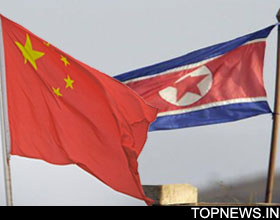China, US defence officials discuss North Korea
 Beijing - Chinese and US defence officials Tuesday held talks that both sides said would on focus North Korea and other regional and bilateral issues.
Beijing - Chinese and US defence officials Tuesday held talks that both sides said would on focus North Korea and other regional and bilateral issues.
Chinese Foreign Ministry spokesman Qin Gang said the defence officials began two days of talks that would also cover Taiwan and "other issues of common concern."
"Against the current background, it is natural to talk about North Korean issues," Qin told reporters.
US Secretary of Defence Robert Gates said Thursday Washington was still trying to persuade China that it needs to be "concerned about the implications of instability in north-east Asia created by the behaviour of North Korea."
Qin said China expected "positive results" from the annual military talks, which are co-chaired by Michele Flournoy, the US undersecretary of defence for policy, and Ma Xiaotian, deputy chief of general staff for China's People's Liberation Army.
A US defence official said in Washington on Friday that the talks were designed to allow the two sides to build understanding and "develop a shared strategic vision".
"We are working with China to try and achieve ever greater transparency," said the official, adding that the US side wanted to understand the "continuing Chinese military build-up".
Flournoy is also scheduled to visit Tokyo and Seoul after her talks in Beijing.
Her trip comes amid growing tension over North Korea, which has threatened to conduct more nuclear tests and missile launches in defiance of United Nations Security Council resolutions.
China halted all military exchanges with the United States in October following a 6.5-billion-dollar arms sale to Taiwan under the previous administration of George W Bush.
After the first Sino-US military talks under US President Barack Obama's new administration in February, China said it had made little progress, mainly because of continuing differences over Taiwan.
Annual military consultations between China and the United States began in 1997, following an agreement between former Chinese leader Jiang Zemin and then-US president Bill Clinton. (dpa)